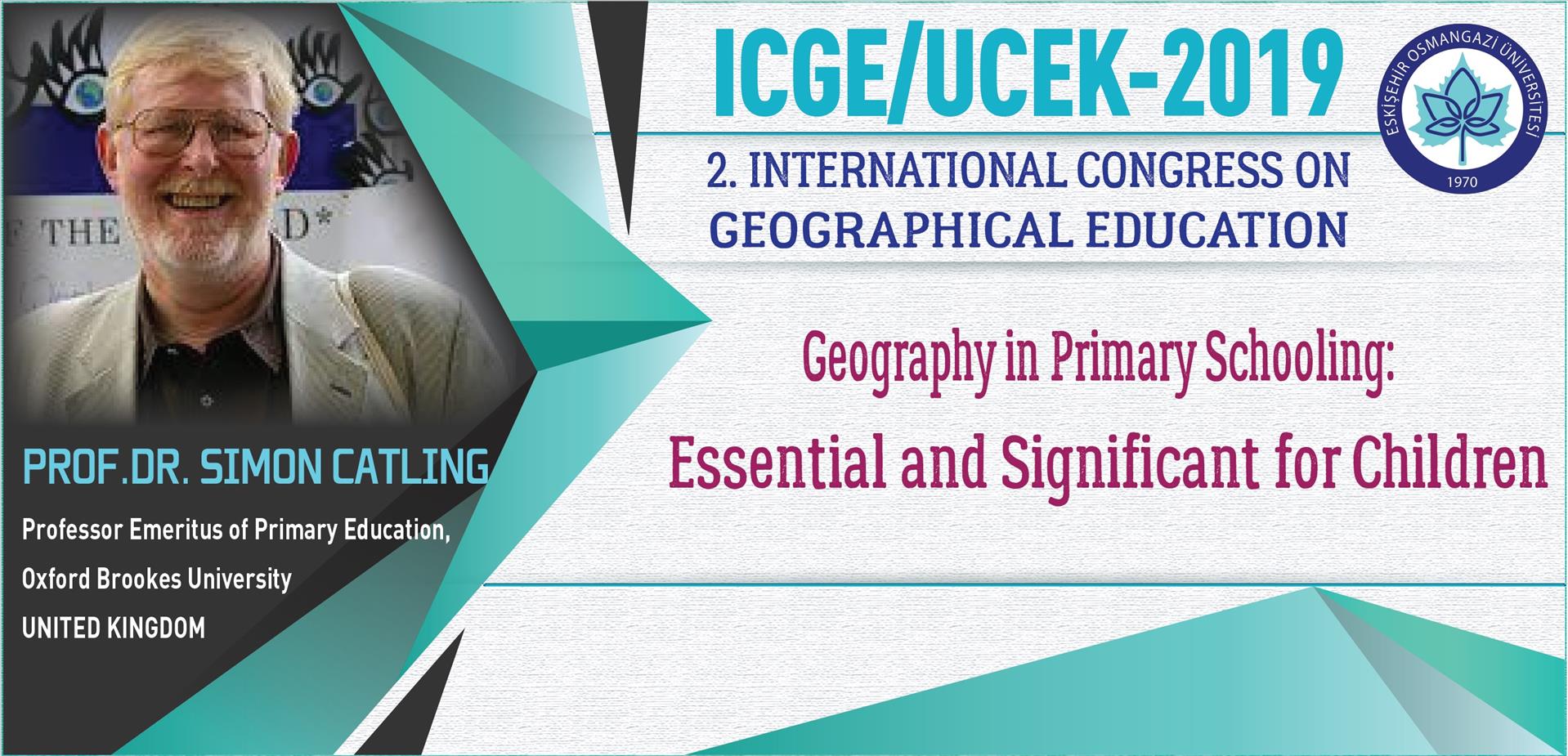
Invited Speaker: Prof. Dr. Simon CATLING
Title of the Speech: Geography in Primary Schooling: Essential and Significant for Children
Abstract of the Speech: Geography is a key element in children’s lives from their earliest years. Children explore, investigate and understand the world about them through encountering local urban or rural places and encounters which foster their awareness of the wider world. This arises in their family and peer connections and from a variety of media. Children’s sense of self and their identity closely interplays with their experiences in places and with people; it builds their place attachment locally and nationally. Their skills of observation and mental mapping emerge naturally, as do their interests in people’s lives, places and environments. Children gather information about places, start to make connections in their emerging understandings and begin to grasp several key ideas about our lived-in spaces, some connections and interrelationships in and between places at various scales, aspects of physical and human environments, and care for the environment. Not only do young children bring this developing awareness and knowledge to school, it evolves during their primary years.
Children’s ‘geographies’ are significant in their lives. This is why it is essential that opportunities are taken to help children to extend and enhance their understanding from the start of and throughout their primary schooling. From age 6 children’s knowledge and understanding of places, environments and people should be developed to help them appreciate and know about some of the natural and social characteristics and processes affecting communities, places and environments. Geography is the subject to help them learn more about the wider world – what there is and what occurs in it, where and why – to enable them to recognise places and peoples interdependence and to know of the diversity of the world, recognising much that is shared. Children should be introduced to the wonder of the world and through their experiences to geography’s ‘big ideas’ – such as scale, interconnections, place, location and sustainability. Essential in this is that primary children investigate outdoors using fieldwork and build their mapping skills, and undertake enquiries and investigations using a range of sources and resources, including the web. Through geographical studies children begin to explore concerns such as resource distribution and access and why and how it is important to look at ways to care for and improve the environment. Geography in primary schooling provides the essential groundwork that underpins their geographical studies during secondary and high school, and it stimulates their fascination with the world.
Biography of the Invited Speaker:
Professor Simon Catling is professor emeritus of primary education at Oxford Brookes University, Oxford, UK. He has published widely in geography education for primary age children, teachers and researchers. His recent books include the edited volume Research and Debate in Primary Geography (Routledge, 2015) and Understanding and Teaching Primary Geography (with Tessa Will, Sage, 2018). He is a past President of the UK’s Geographical Association and has been Honorary Secretary to the International Geographical Union’s Commission on Geography Education. His current interests concern geography textbook authoring, children’s geographical knowledge, children’s geographies and the primary geography curriculum and the concept of knowledge for primary geography.

